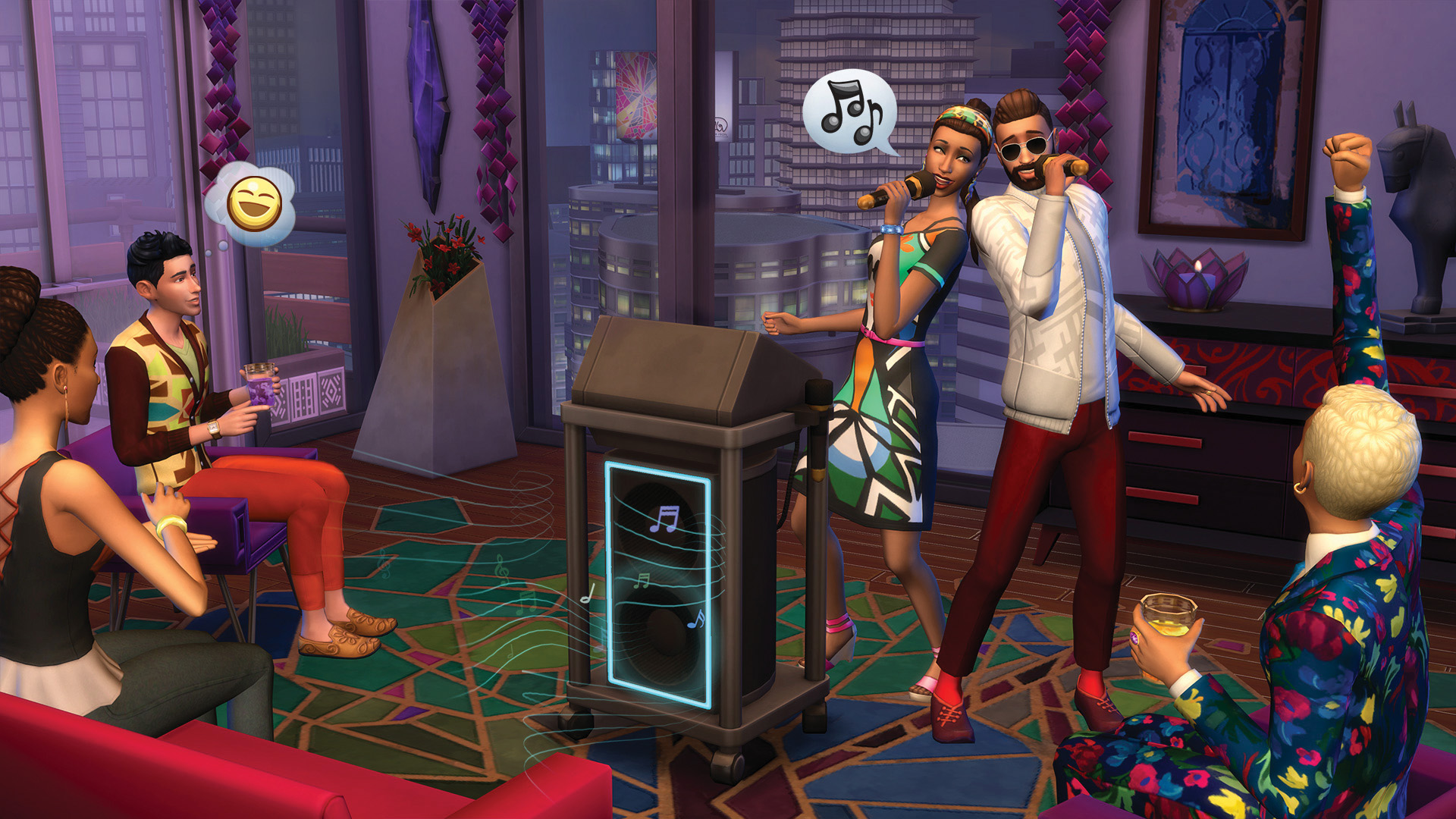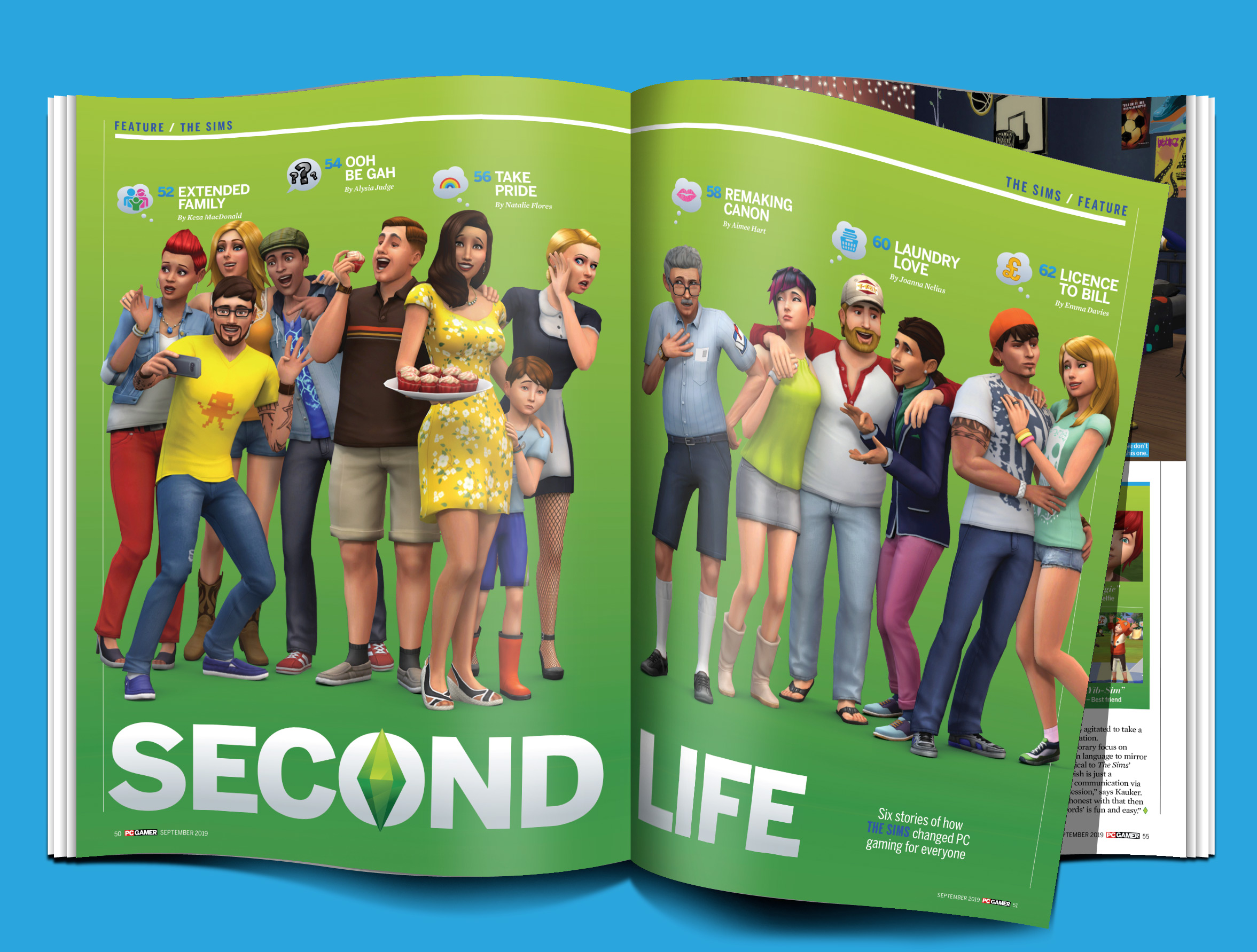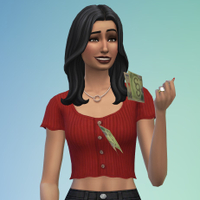How to speak like the Sims
Simlish is an art form.

The last time you stubbed your toe, hopped on one foot, and cursed in a series of wordless noises—“mmmmnaaargh ow umph!”—you were speaking Simlish. The exact collection of strangled vowels that echoed down your hallway probably haven’t yet been heard in a Sims game, but their emotional delivery is the core tenet of speaking The Sims’ iconic language fluently. Here, anguish communicated more than “I banged my foot” ever could. Feeling is more important than phonology in Simlish.
Emotion is the answer to a problem that had developers scratching their heads in 1996. Sims needed to communicate realistically—it’s a life simulator after all—but using English would become repetitive and literally put words into the mouths of characters whose story belonged to the player.
“We went with Simlish to solve the creative problem of the user created story,” says Robi Kauker, audio director for The Sims. “Simlish gives an emotional context to what is happening in game without interjecting specific meaning. So when two Sims have a conversation, it is up to the player to decide if it is about the weather, or an affair between neighbours, or anything else.”

Game of Thrones, Lord of the Rings, and other fantasy dramas invented fictional languages that are spoken in real life as fluently as French. The grammatical richness of Elvish and Dothraki make Middle Earth and Essos seem more real, but it’s rare to find the same level of linguistic minutiae in videogames.
For Kauker, that’s partly because in some games like The Sims, players take an active role in world building, which requires a more laissez-faire approach from developers.

We've republished a variety of stories about The Sims, taken from issue 334 of PC Gamer magazine. For more beautifully detailed articles about the best stories in PC gaming, consider subscribing to the magazine's US or UK editions.
> Stuff, not stories, forms the real heart of The Sims series
> Laundry was the best and worst thing to happen to The Sims
> How to speak like the Sims
> How The Sims has spearheaded queer representation in gaming
> The Sims 2 served as an extension of an already-embarrassing teen existence
> Making your favourites kiss in The Sims
“[TV, film and books] all have a properly defined story,” he says. “It would be wrong for the creators not to define the language ... in The Sims, the game gives that creative role to the player. The player develops the stories and truths about their world with the game.”
So if you want to speak Simlish fluently, you’ll have to be imaginative. Kauker and the team have invented under 200 words that loosely mean something, but they’re never used in exactly the same scenarios.
The biggest gaming news, reviews and hardware deals
Keep up to date with the most important stories and the best deals, as picked by the PC Gamer team.
For example, ‘nooboo’ means ‘baby’, but the word could be heard while a Sim holds a child, tells an age, notes another Sim’s behaviour, or points to a crib. So nooboo isn’t so much the word for baby, but the sound attached to the practical, cultural, and social realities of youth. This leaves room to improvise around words, and invent new sounds that fit a given situation.
The best example of real-world Simlish speakers are found in the singers who translate their songs to be used in-game. Paramore, Jason Derulo, and My Chemical Romance have all recorded full tracks using the developers’ linguistic guidelines but with the freedom to mould the language as they see fit.
So, for example, Katy Perry’s lyric “Cause you’re hot then you’re cold” became “ka vahap ni nap col”, while “you’re yes then you’re no” translates to “fa hit tinap blow”.
“Occasionally we get some unbelievable performances,” says Kauker. “It’s almost like not having the words causes the singer to put more energy into the vocal emotion to get the message across—at least that is my theory.”
Smooshibe sul sul
Simlish is over two decades old and still evolving. In 1996 every Sim’s expression was obvious to the point of slapstick, but with each sequel and expansion pack comes more nuance and complexity. Each successive voice actor has been given the freedom to express their own take on the situations they’re bringing to life, meaning Simlish now has a large toolkit of emotional expressions that are mostly individual to the voices behind them.
Kauker, for his part, has a few favourite expressions, “Having just finished The Sims 4: Island Living and with summertime here, it’s got to be ‘Smooshibe’, which kinda translates to all things sunshine related. And there is always ‘Sul Sul’ which is kind of a greeting sort of in the style of aloha.”
Traditional linguists might find Simlish’s paucity of grammar frustrating, but Kauker’s team mirrors a modern approach to language that abandons the rulebook. Today’s millennial culture has broken down and reshaped English to be as expressive in written form as it is in spoken. Body language, tone, and volume of voice is now conveyed online with atypical use of capitalisation, spelling, and acronyms. For instance, a total absence of punctuation is used on social media to express unfettered excitement, and to mimic the way someone speaks when they are too agitated to take a breath in conversation.
This contemporary focus on reshaping written language to mirror emotion is identical to The Sims’ approach. “Simlish is just a commitment to communication via emotional expression,” says Kauker. “If you can be honest with that then making the ‘words’ is fun and easy.”
Sims 4 cheats: Life hacks
Sims 4 mods: Play your way
Sims 4 CC: Custom content
Sims 5: What we know
Sims 4 building tips: Renovate
Sims 4 challenges: New rules


